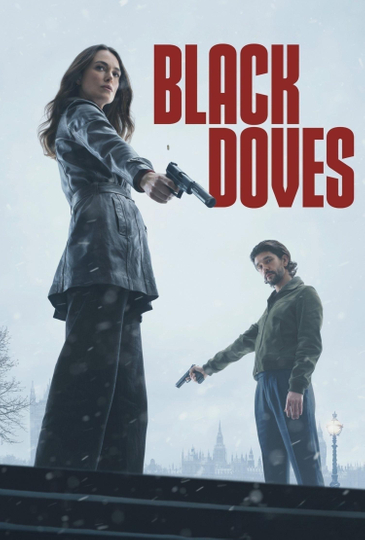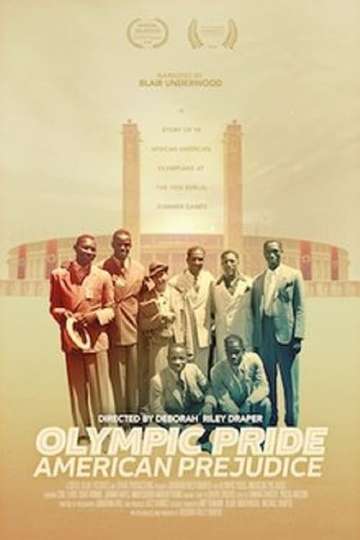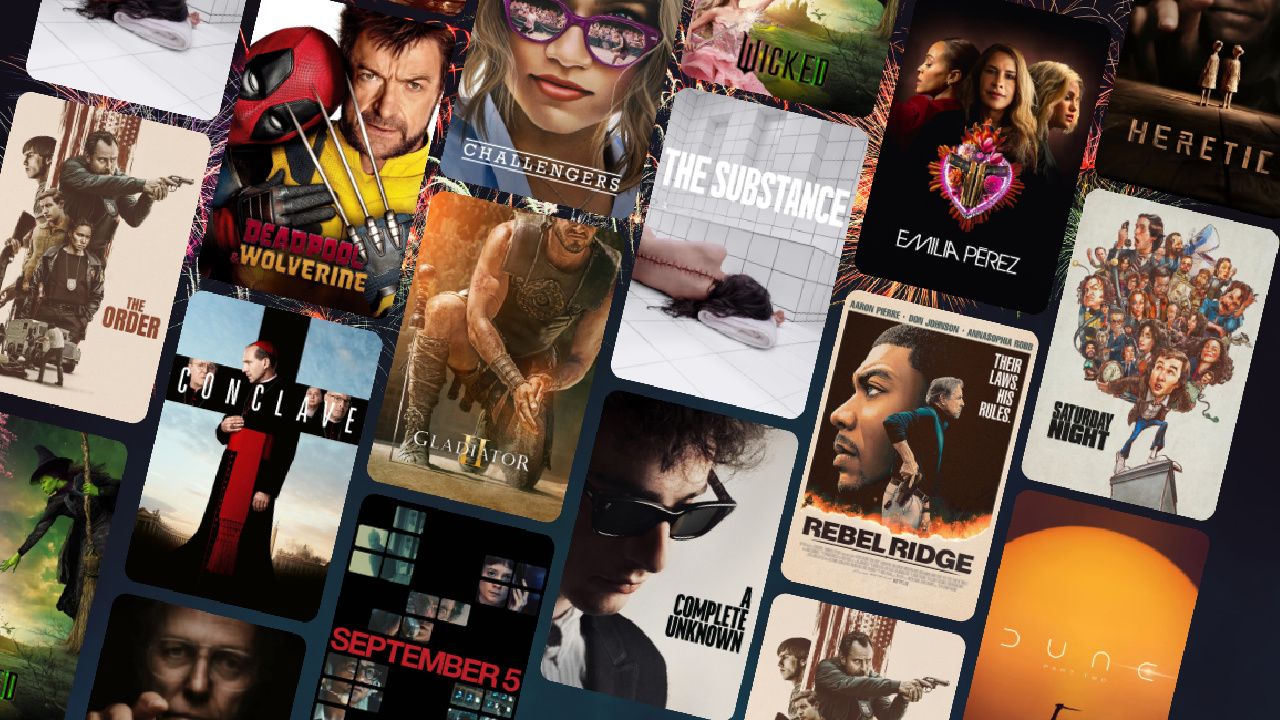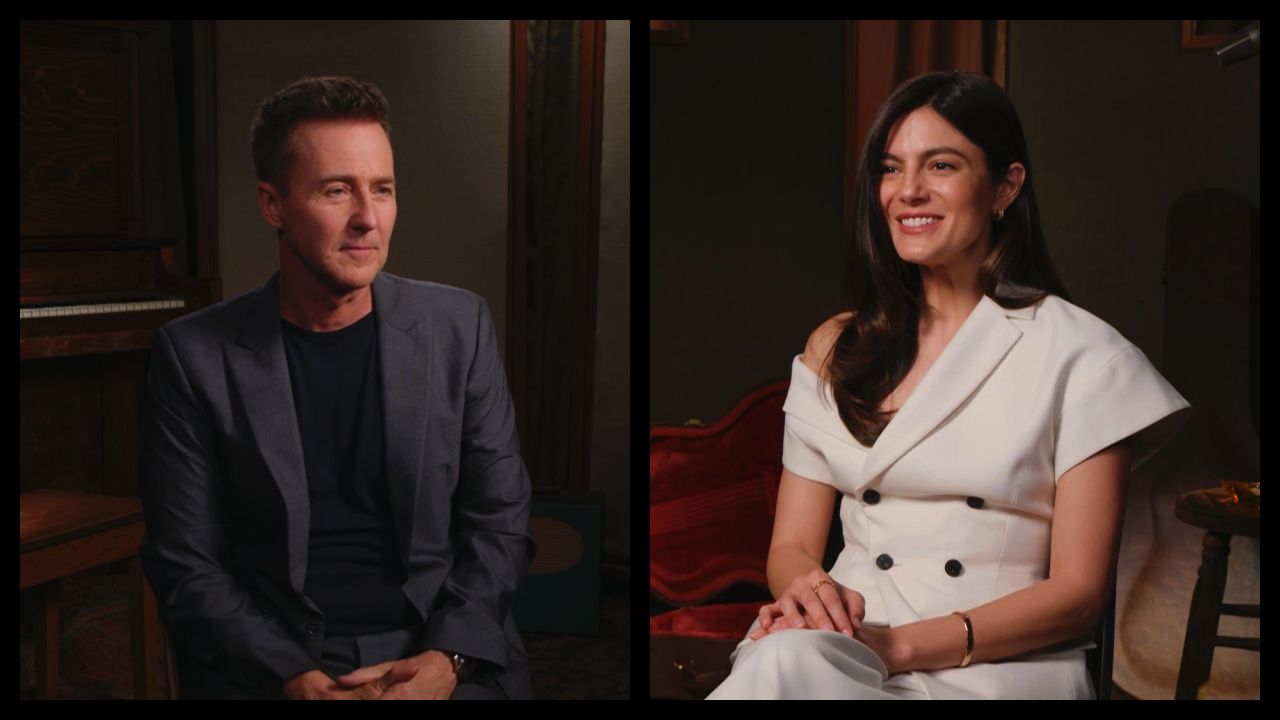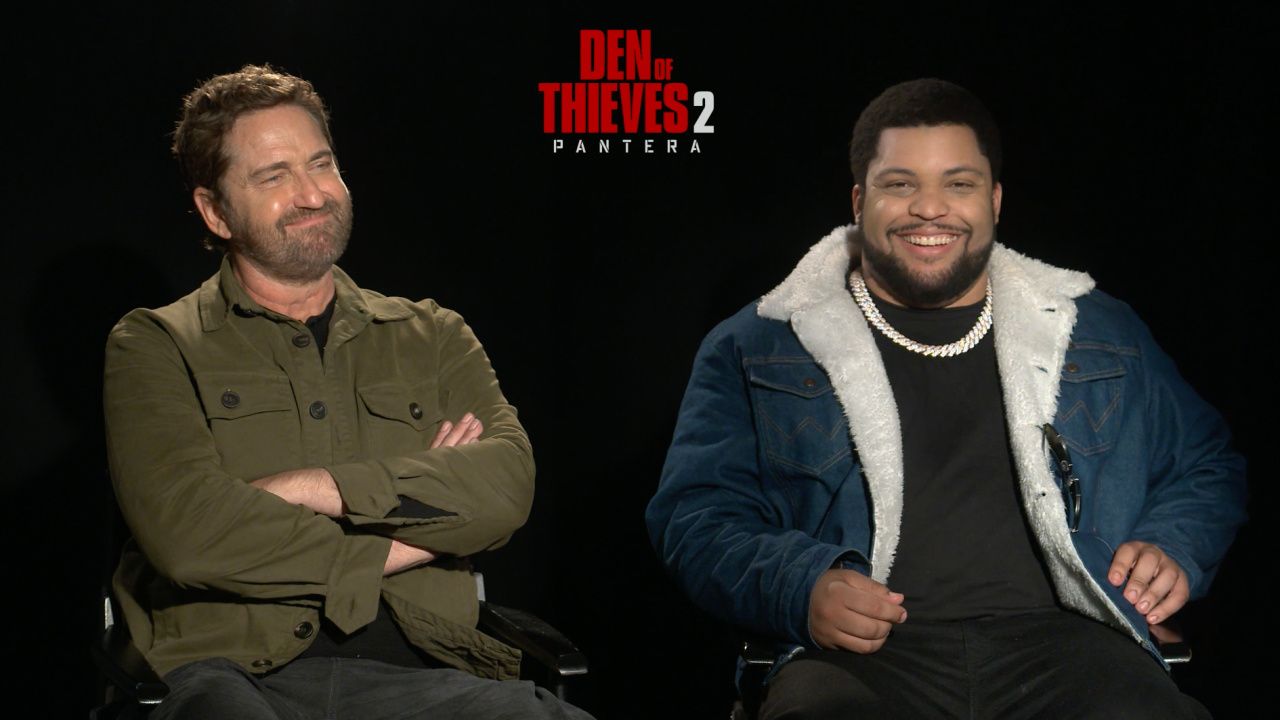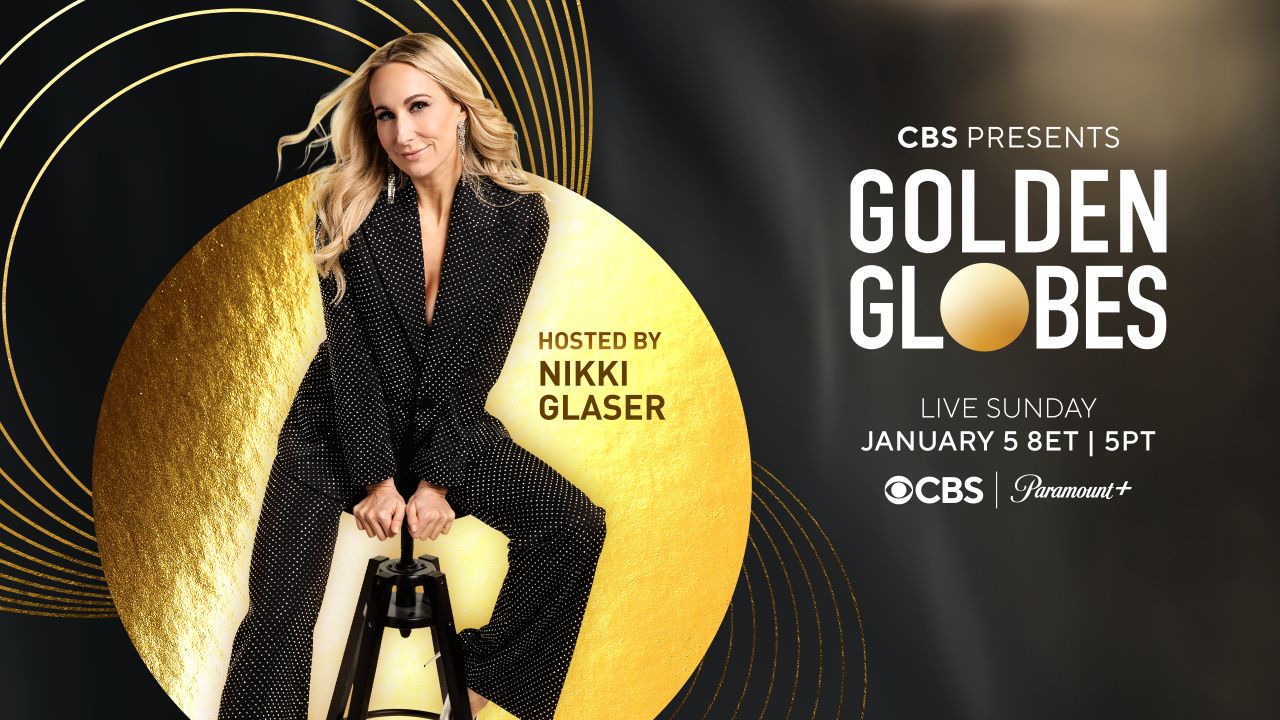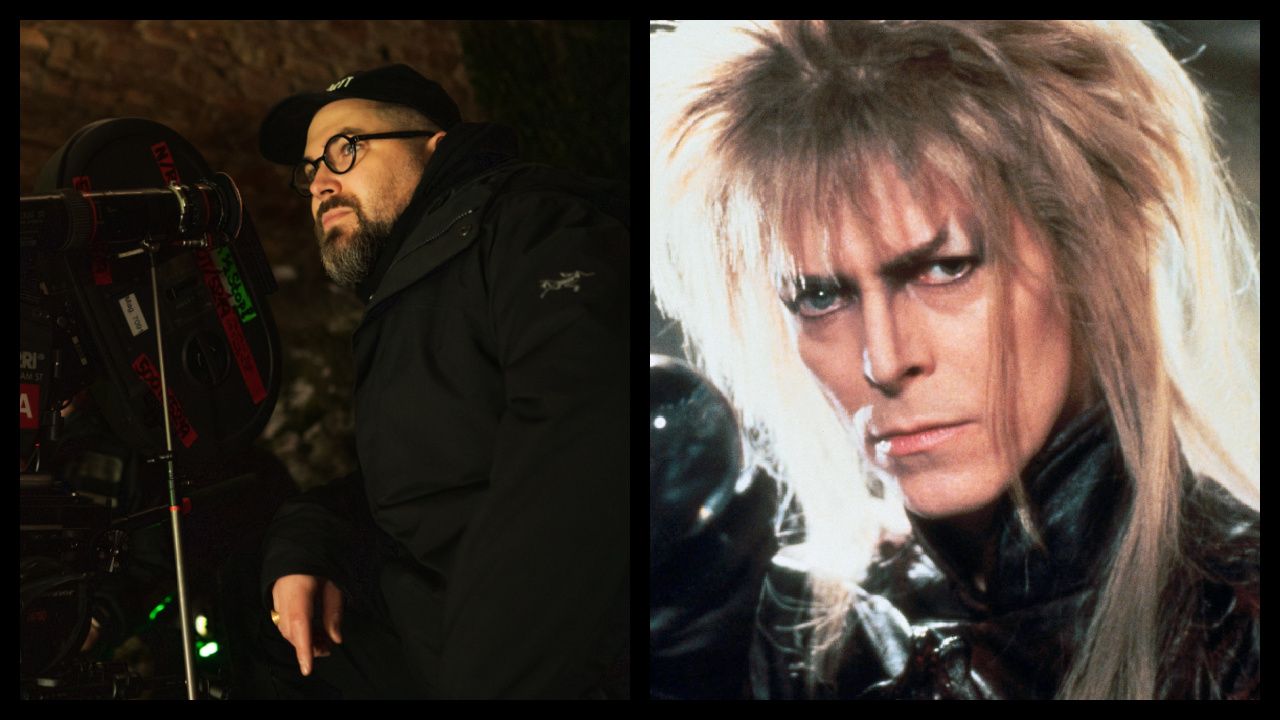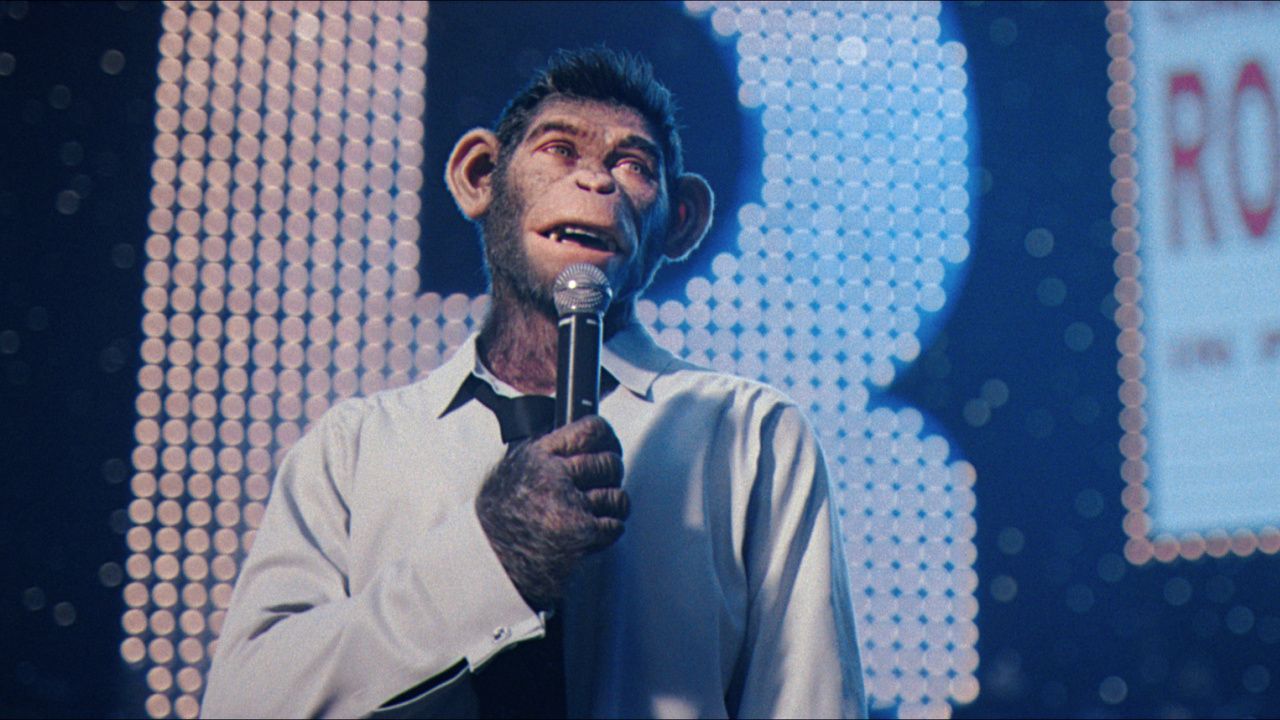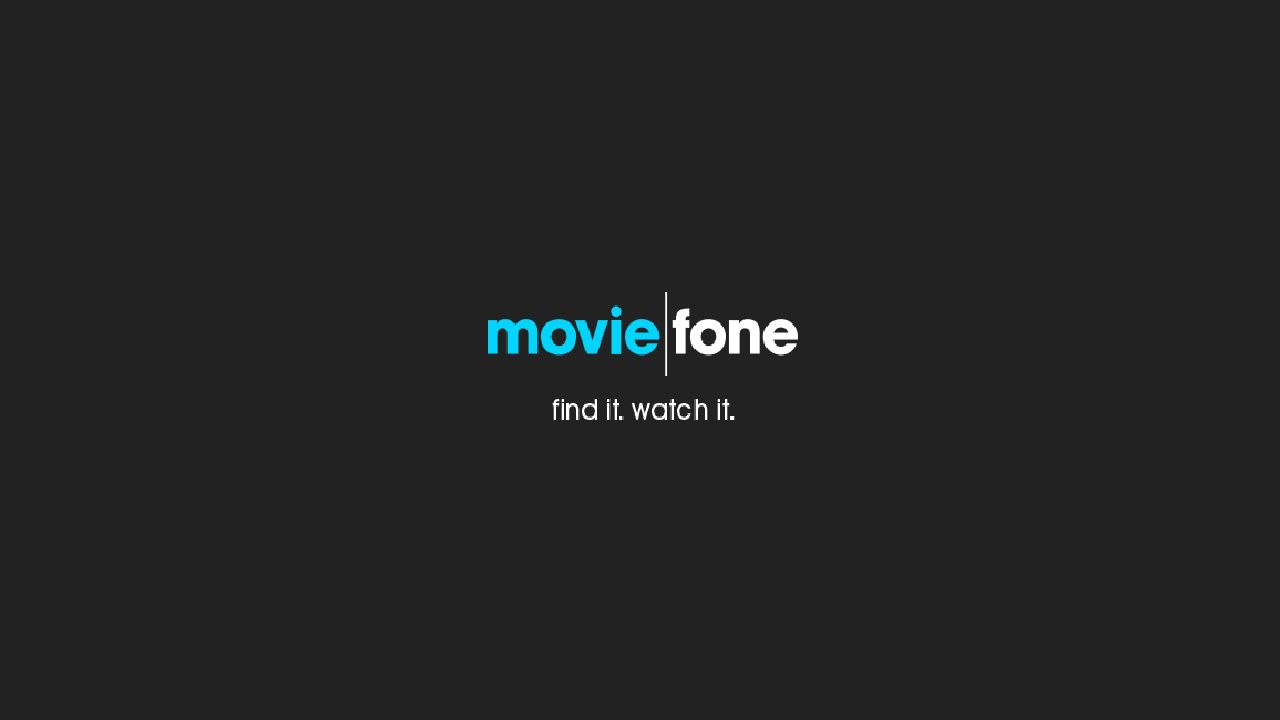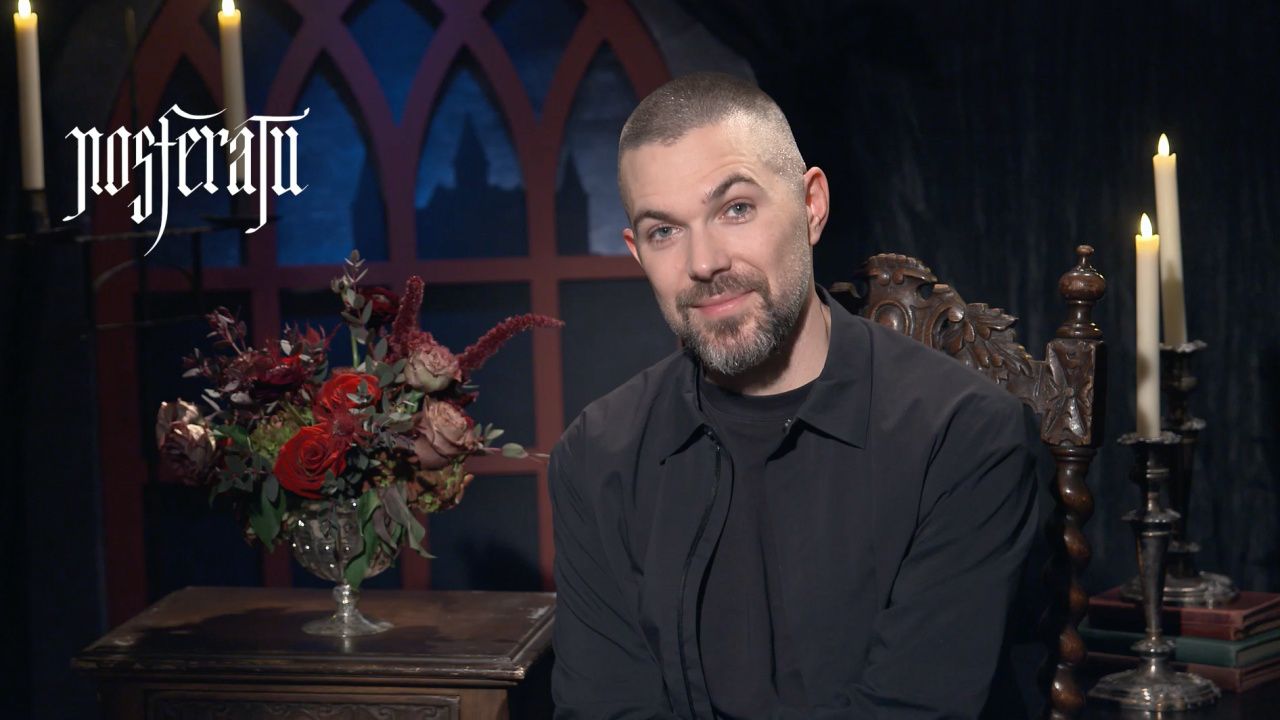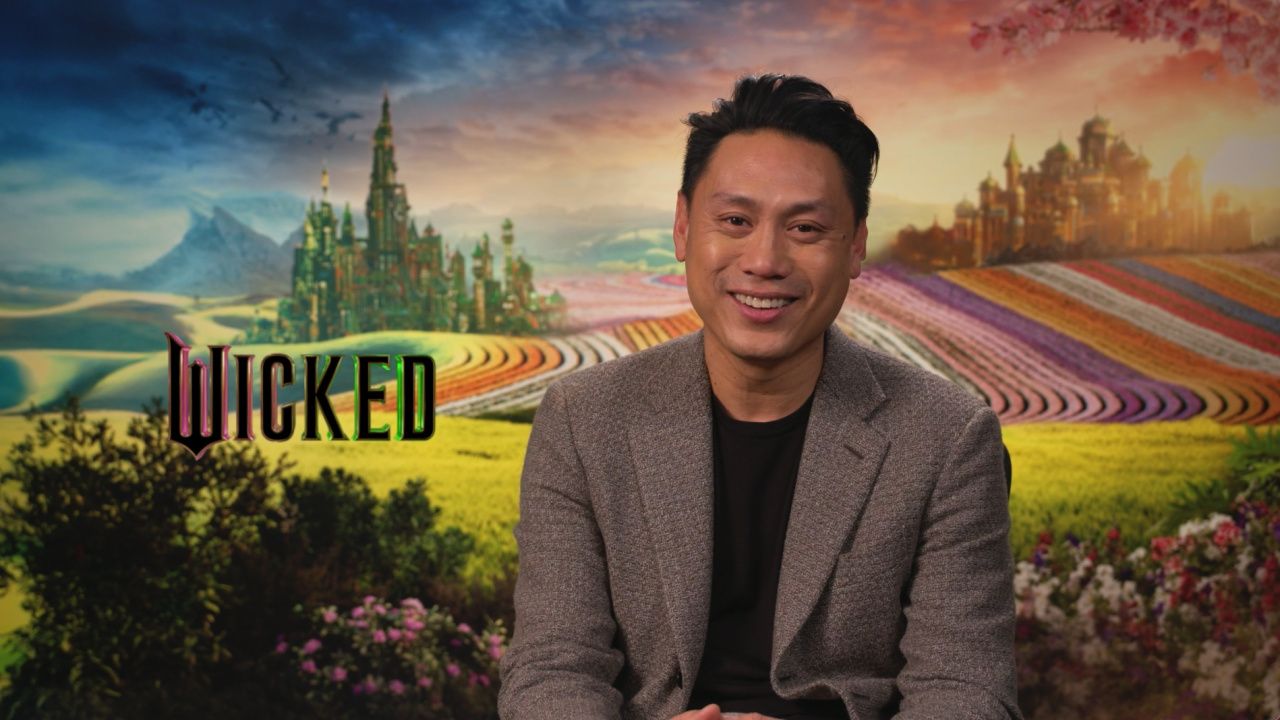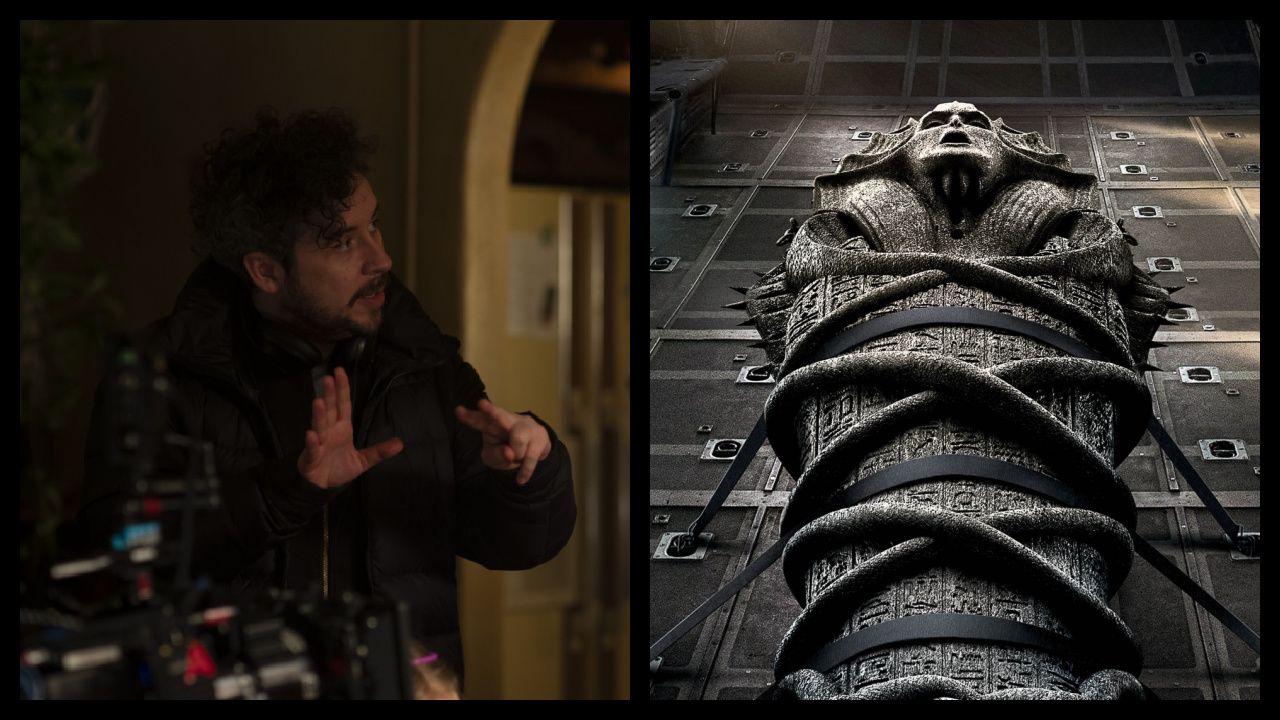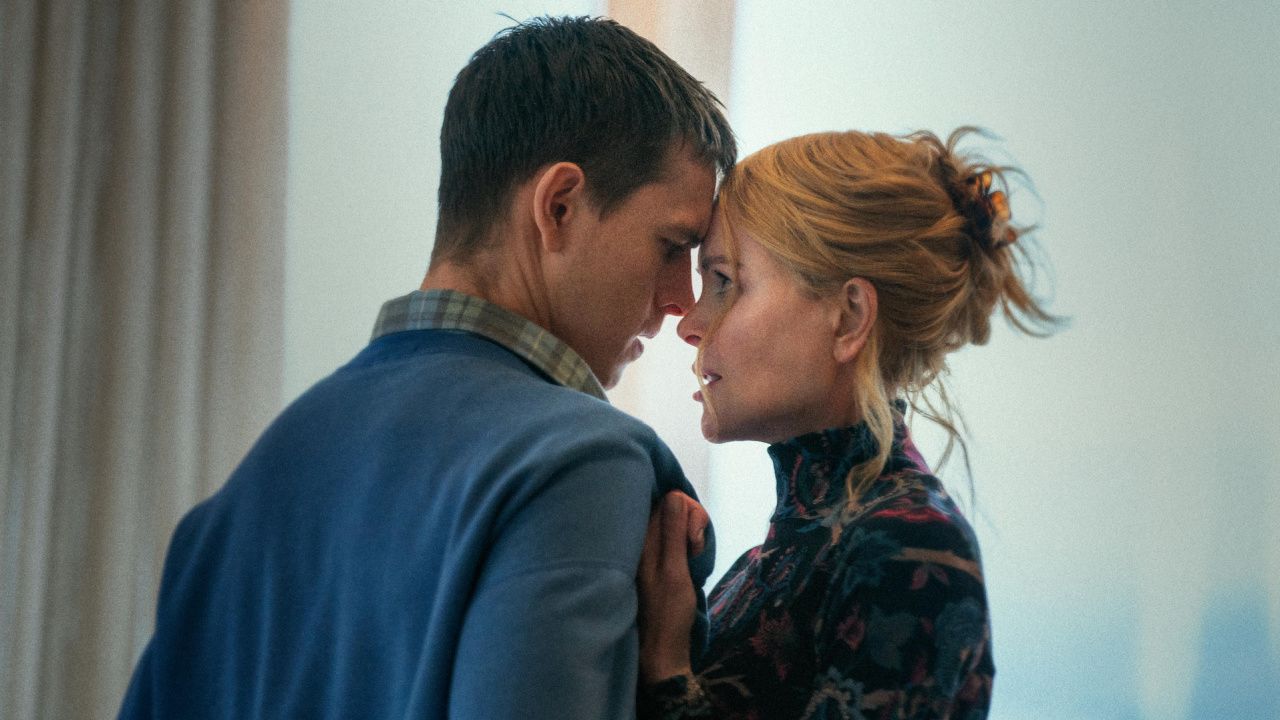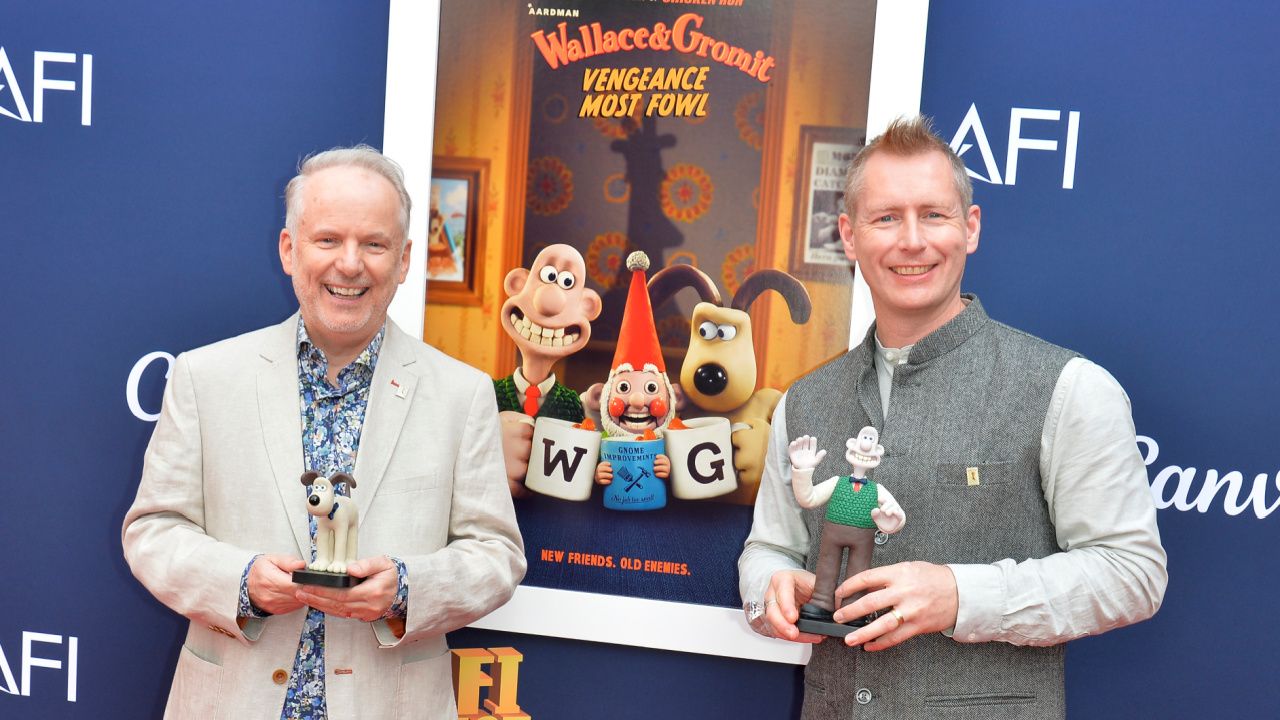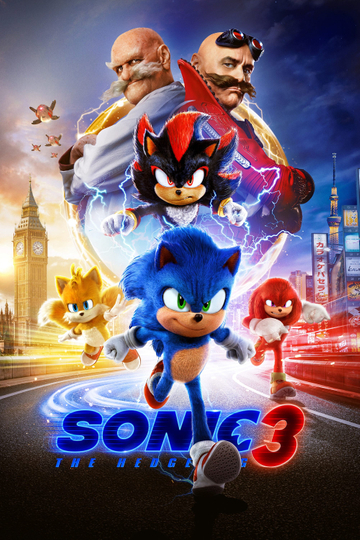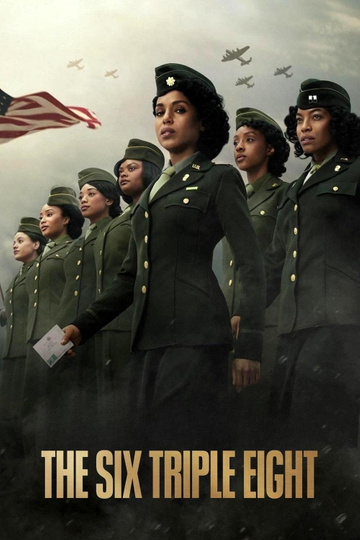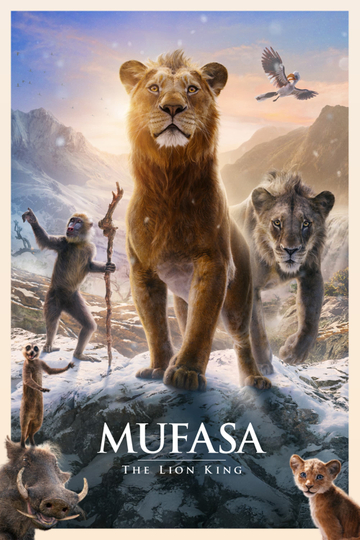Why 'Quantico' Star Blair Underwood Is Exactly Where He Wants to Be
"Quantico" star Blair Underwood isn't only enigmatic CIA official Owen Hall, currently mentoring Alex Parrish, he just might be TV's stealth superstar.
Few actors have enjoyed the sort of long-term success on television as Underwood, who's made a career of turning up on the right shows at the right time. Long before joining the second season of ABC's hit covert thriller starring L.A. Law," a star turn that resulted in multiple Golden Globe and NAACP Image Award nominations.
Over the intervening decades, Underwood would turn up in key recurring roles on a succession of shows-of-the-moment, including "The New Adventures of Old Christine," "Dirty Sexy Money," "In Treatment," and, most recently, "Agents of S.H.I.E.L.D."
The actor, 52, joined Moviefone for a look at his latest TV success, his increasing behind-the-scenes roles, and his long history of being an MVP guest star.
Moviefone: You're always a very busy and in-demand actor. Of all the various choices you had, what was the thing about "Quantico" that made you say, "I'm going to jump aboard this moving freight train and see where I fit in?"
Blair Underwood: I'll tell you, it checked all the boxes I was looking for. The last series of television I did where I was a series regular was "Ironside" a few years ago. You work hard -- blood, sweat and tears -- and then they put it on for three weeks and then pull it. It has no time whatsoever to gain an audience. So I checked out for a year and I did theater -- I retired for a year. I knew I was doing it, I'm going to take a year off and go do theater and do the things that I love. I played Othello down in San Diego at The Old Globe, worked with Cicely Tyson and Vanessa Williams in "The Trip to Bountiful."
By December that year, I did my first episode on "Agents of S.H.I.E.L.D.," but I was recurring. So I knew if I was going to do a series again, it had to be all the boxes checked. It something that was already on the air, something that was already successful, a character that was challenging, a character that was interesting, and that was really it. That was the criteria -- and of course something well-written.
"Quantico" checked all those boxes. It had been on the air, number one. It's got a phenomenal international success, which was exciting to me -- really, based on Priyanka's outreach, it's now in 217 territories, which is unheard of for a show in its first year. So it's already got built-in success.
Then the character itself: I'd been speaking to Josh Safran, the creator of the show, and Nick Pepper, also one of the producers of the show, they explained to me the arc, where they saw this character going in the future, this season and beyond. It just made sense. It was just exciting. The whole prospect of it was exciting to me.
Once you dug into Owen, what did you find intriguing about him -- and maybe a little different from any of the other characters that you played in the past?
What's intriguing about Owen is that he's filled with intrigue. He's filled with the understanding of covert operations. The understanding of agenda, and motivation, and modus operandi, and deceit. Being deceitful in the CIA, come on, we're training spies, is an art form, and is a necessity. It's his job as the lead instructor to teach these recruits how to cheat and lie and be mysterious -- and all for the benefit if our country, to serve and protect our country. So there's a lot of nuances -- and not only in the character, but the world, the waters we're swimming in this season, juxtaposed to the FBI, which is all about truth and justice.
How much of his backstory and those mysteries do you already know, and how much are still there -- not just for the audience to find out, but for you to find out as we go forward?
Well, there's quite a bit. I think four episodes have aired, we're now shooting 10, so I, as the actor, am a little further down the road. But it really is on a week-to-week basis as we find out. Which is fine. I think years ago I would fight that: "I need to know more. I need to know how to play the scene." But now I'm on a need-to-know basis.
I actually, on the contrary, I quite enjoy week-to-week finding out more and more about the underpinning of who this person is. It's like peeling off layers every week. So I'm enjoying that part of the process now. I know a little bit more than what's aired, but not much. What I do know is there's some very fascinating, interesting dilemmas and relationships, not the least of which are those with his daughter, played by Tracy Ifeachor, Lydia.
With Priyanka, we've got this great, fresh face on television, this new star, who also comes with a lot of experience before global stardom really hit her. What's been the fun of watching her coming into her own as you work on the show together?
That was another one of the boxes that was checked. I loved the idea that the show was centered around a fresh face to an American audience. Of course, she's very well known all over the world, but to see this face, and this personality, and this talent emerge in this marketplace is exciting to watch. That's on the outside looking in.
Now, working within the confines of the show, to see this person who I'm getting to know as an actress, and as a professional, it's exciting. She in many ways is breaking down barriers as an Indian-American actor in this American, Hollywood market, and doing it with a flow, doing it very well. And she's a constant consummate professional, and just good at what she does. You see what you get when you tune in the show. The work is great, but also she in doing the work in a consummate professional.
It doesn't seem that long ago, but there was a time when you were breaking down barriers and stereotypes for African-American actors on television. Tell me about that side of the journey for you, looking back at all the time, and how far everybody's come since then.
Well, thank you for saying that. It has been a while. It's been the last 31 years. I think back just to "L.A. Law." We had an interracial relationship, my character, for a whole season. That was noteworthy, and a topic of conversation, the fact that there was an interracial relationship. Now, I look on TV and that's nothing -- which is also how it should be. If you're an actor or actress, you should be able to play all characters.
The reason it's not noteworthy anymore, it's just the way it is, it's because of what I call "the Grey's Anatomy," "Scandal," "How to Get Away with Murder," the idea of colorblind casting, we're not shining a light on the fact that this is an Indian-American with a white actor, or a black actor with a white actor, or whatever. It's just people, and that's the way I've designed and built my career, is to not let that be too much of a point of conversation, a topic of conversation. Just let me be me.
That's how "Sex and the City" came about. They were kind enough to invite me on to the show a year prior to when I did, and I said "Thank you, but no thank you," because it was all about Samantha and her curiosity with dating a black guy. I wasn't interested in doing that. But then they came back around, we had this conversation, as I had with "Dirty Sexy Money," with "In Treatment," and with "The New Adventures of Old Christine." If I'm going to play this role, is it going to be about the curiosity of being with a black man, or is it about who this man is, this character? And all those shows I mentioned to you, we had that conversation, and we all decided that it's going to be about the character.
During your stint on "Agents of S.H.I.E.L.D." you got to play another unique facet: you got to be an Inhuman.
That was so much fun!
We never got to talk about it while you were doing it, but tell me about that experience. Everybody wants to get their shot at some kind of Marvel project in Hollywood right now.
That was definitely on the wish list. You don't always get what you wish for, but that was something that, yeah, I didn't know what capacity, but I remember thinking, "Man, I'd love to play in that Marvel world, somewhere, somehow." And, as it turns out, Ming-Na [Wen] and I went to college together. We're old college buddies, and had no idea. When we discussed doing the role, they hadn't even talked to her. I thought maybe she threw my name in the hat. She said, "No, I didn't know anything about it, but welcome to the party!"
By the way, my wife and I have three teenagers, and they haven't seen a lot of what I've done. They've seen all my live theater work, but not a lot of television. But when I did "Agents of S.H.I.E.L.D.' they were all about it. It had cool factor.
I'm also curious about your experience as a producer on "Give." That sound like such a great all-around, good-feeling-for-everybody kind of project. So tell me where it started and what's been the get-back from getting it off the ground for you.
Yeah, Scott. Thanks for asking that. I'm so excited about this project. This was a project that was brought to me by my business partner, Gary Reeves. It was his idea. It initially started off as, "Let's do a 'Shark Tank' for charities: find a way where charities can be elevated and be given some kind of attention, but also kind of maybe kick the tires and look under the hood of how charities and foundations operate, and run as a business of sorts." We know they're all doing good work, and that they're in it to do good work, but it is a business of sorts.
So that was the initial idea. It morphed into what "Give" is now. Of course, each episode highlights two different charities, two different foundations. We have an overriding foundation that sponsors it, and we usually give away up to $50,000, sometimes $30,000, but there's a monetary giveback. And you have one celebrity each episode. You go on to two different charities. You explore them and see where they may need some help. And by the end of the show, there's some kind of giveback.
So far, it's always been monetary, but in addition to that, we have experts in the foundation world that know how to build a foundation. So often you come across charities or non-profits, and the heart is in the right place, but the people running it may not necessarily know how to run it most efficiently, or most effectively, and that's where we come into play with counseling or what have you.
I'm shooting a show this weekend for Ford. Ford is sponsoring this particular one, so we're going to give away a car. So we're not just giving away a car, it's a foundation where they may need transportation for whatever reason. So it's very exciting. My production company, Intrepid, is co-producing it with Bungalow Media, that I'm excited about. So on Saturday morning, "The More You Know" block, and we just launched it three weeks ago, and we're guaranteed 26 weeks on the air.
Are you going to get back to kicking out some detective novels, as you were doing a few years ago?Do you still have some Tennyson Hardwick stories in mind?
I don't think so. We did four total, and I think we've kind of run the gamut on Tennyson right now, in terms of the novels. I still would very much like to turn them into some kind of cinematic expression, whether it's cable, or film, or series. I don't know. That's definitely an option we're always looking into.
What was the fun of that experience for you, the sort of fresh side of exploring your creative instincts
That was it, the creative instinct, but it also was collaboration. Actors get a lot of the attention and the focus, but come on, what we do is all about collaboration. Any show you can think of, there's at least 200 people behind the scenes making that happen. So the idea of being able to collaborate in a literary sense with two extraordinary writers, Tananarive Due and Steven Barnes, and kind of just spitball creatively, the three of us, trying to figure out "What is this story and what is this franchise all about?"
And then I got out of the way. That's really their skill set. That's their wheelhouse, the actual writing of it. The idea was they oversee the writing and I oversee the film rights, or the cinematic rights. So I've got to get back on my job and make it happen.
I feel like in today's landscape of TV and streaming, there is a place for it, for sure.
That really is the beauty: just the fact that there are so many platforms out there, and they all need content. They all need product. So as a producer, that's exciting. Exciting opportunities and possibilities.
You're wearing your producer hat, you're wearing your actor hat, you've got so many accomplishments and such a great body of work, what are your goals over the next few years? What are the benchmarks you still want to hit, or the types of things you still want to do going forward?
I think I still want to tell stories. It doesn't have to be as an actor, it doesn't have to be as a director or a producer, but tell stories that make some kind of difference. Another film I executive produced was a documentary called "Olympic Pride, American Prejudice." What was amazing about that, very quickly, we know about Jesse Owens 1936 Berlin Olympics, the Nazi Olympics. This story is about the other 17 African-American athletes we never heard about. They were forgotten in history.
What was amazing last month was that these 18 African-American athletes were not invited to FDR's White House, where the other Olympians were in 1936. So here we were a month ago, with the first African American president, the leader of the free world, invited all the Olympians from Rio, but he also posthumously acknowledged these 18 African-American athletes and screened the film there in D.C. The families were invited to the White House. It was amazing.
So I say all that to say between "Give" and "Olympic Pride, American Prejudice," the documentary, to be able to tell stories that go beyond the entertainment factor, that actually help people. And in the case of the documentary, leave some kind of legacy to them. It just makes you feel good. It doesn't have to be any kind of monetary return. It makes it all worth it.
Olympic Pride, American Prejudice







